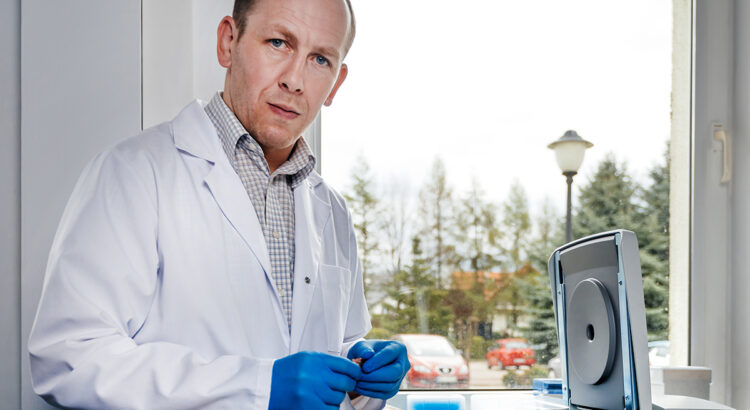Partially defatted poppy seeds, a by-product of poppyseed oil cold pressing, are a source of health-promoting dietary components, indicates a scientist from the Institute of Animal Reproduction and Food Research of the Polish Academy of Sciences in Olsztyn. Consuming them in the form of a dietary supplement (approximately 5.5 tablespoons per day) can beneficially alter lipid metabolism and support the treatment of obesity and its complications.
– In our research, we wanted to check to what extent this by-product of poppyseed oil pressing can still be useful for consumption and act as a valuable dietary component in the context of diet-related diseases. Such a form of poppy seeds is less calorific and may even be richer in some health-promoting compounds than native seeds – says dr. Adam Jurgoński, professor of IAR&FR PAS in Olsztyn.
A paper addressing this topic has been published in the prestigious journal Scientific Reports.
LIKE TWO PEAS IN A POD
Poppy seeds are a popular ingredient in Polish cuisine, especially added to bread, cakes and festive dishes. They are rich in nutrients – almost half of them consist of fatty acids present in the oil fraction (including polyunsaturated fatty acids, which are important components of our diet). They also contain dietary fibre, protein and various antioxidant compounds.
Poppyseed oil is usually cold-pressed. This process involves mechanically separating the oil from the seeds at a low temperature, allowing for additional protection of the nutritionally valuable components. Poppyseed oil is high in linoleic acid (omega-6 acid), which is essential for the proper functioning of our body, although its intake is usually excessive in relation to other essential fatty acids present in our diet (i.e. omega-3 acids).
A by-product of the cold-pressed oil is partially defatted poppy seeds, also known as oilcakes. – It turns out that reducing this dominant oil fraction increases the proportion of dietary fibre, protein and some biologically active compounds. Thus, these seeds remain a product that is still valuable from a nutritional point of view – points out Adam Jurgoński.
POPPY VERSUS BODY LIPIDS
Researchers investigated the effect of dietary supplementation with partially defatted poppy seeds on the development of obesity.
The study was conducted on a laboratory animal model characterised by increased body weight. Overweight and obesity cause disturbances in the metabolism of lipids and glucose, and this in turn can lead to diet-related diseases such as certain cardiovascular diseases, steatohepatitis or type 2 diabetes.
– We have shown that relatively small dietary supplementation with defatted poppy seeds (for humans, this is about 5.5 tablespoons of these seeds per day) improves lipid metabolism in the body by reducing triglycerides in the blood and liver, and preventing increased visceral fat accumulation. We have also tentatively identified the molecular mechanism underlying these beneficial changes – reports Adam Jurgoński.
Elevated triglyceride levels and excess visceral fat are associated with an increased risk of the previously mentioned diet-related diseases.
According to the researcher, the new knowledge may be useful to nutritionists as well as food and supplement manufacturers, as it points to new possibilities for the use of the by-product in question, e.g. in the form of a pro-health 'filling’ to poppy seed cake (the seeds are already ground and do not require additional milling, like the regular ones).
– Therefore, poppy seeds in their partially defatted form can be an interesting ingredient in our diet, which turns out to be beneficial for the functioning of the body affected by metabolic disorders related to obesity – concludes Adam Jurgoński.
